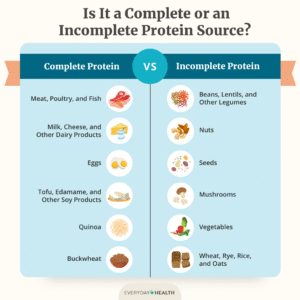New Research Re-examines the Cause of a Red Wine Headache
The Cause of Red Wine Headaches: New Research Sheds Light on the Mystery
Introduction: Understanding Red Wine Headaches (RWH)
Red wine headaches (RWH) are a common issue for many wine drinkers. These headaches can occur as soon as 30 minutes after drinking even a small amount of red wine, and researchers have long struggled to identify the cause. A recent study brings new insight into the potential triggers, focusing on a compound found in red wine called quercetin.
What is Quercetin and How Does It Relate to Red Wine Headaches?
Quercetin is a flavonoid found in the skin of grapes, and it is more prevalent in red wines than white wines. Dr. Andrew Waterhouse, a wine chemist at the University of California, Davis, led the recent research on this compound. He and his team found that quercetin may play a significant role in causing RWH. Unlike other common triggers, such as histamines or sulfites, quercetin’s effect on headaches is linked to its potential to inhibit an enzyme that helps metabolize acetaldehyde—a compound that can accumulate in the bloodstream and contribute to symptoms like headaches.
Why Do Some People Experience Red Wine Headaches?
Red wine headaches can be triggered by even one glass of wine. Dr. Anna Speed, an assistant professor of neurology at Icahn School of Medicine at Mount Sinai, notes that the severity of RWH varies among individuals. Some people may experience headaches with just a small amount of red wine, while others are more resistant. The variability suggests that there may be multiple factors at play, including individual tolerance levels and the presence of certain compounds like quercetin in wine.
Factors That Influence Red Wine Headaches
Red wine headaches are not the same as a hangover, which typically occurs after drinking larger amounts of alcohol. While histamines and sulfites have long been suspected to cause RWH, recent research has cast doubt on these theories. Instead, quercetin’s interaction with acetaldehyde may provide a clearer explanation. Further studies are needed to confirm this theory, but early findings show that quercetin could be the key compound behind these headaches.
Are Some Red Wines More Likely to Cause Headaches?
At this stage, it’s difficult to pinpoint exactly how much quercetin is in a bottle of red wine, as concentrations can vary. However, Dr. Waterhouse suggests that the level of sunlight exposure the grapes receive during cultivation could be a factor. Higher-quality wines, which often receive more sunlight, may have higher levels of quercetin than cheaper varieties. This means that expensive red wines might be more likely to cause headaches, though more research is required to validate this hypothesis.
What to Do If You Are Prone to Red Wine Headaches
If you experience headaches from red wine, it’s important to consider preventative measures. Dr. Speed recommends staying hydrated, getting enough rest, and eating balanced meals before and after drinking. For some individuals, avoiding red wine altogether might be the best solution. However, for those who only occasionally experience RWH, practicing caution and moderation could be enough to minimize the risk of headaches.
Managing Red Wine Headaches: Tips and Treatments
If a red wine headache does occur, over-the-counter pain relievers like aspirin, ibuprofen, or acetaminophen can provide relief. Additionally, staying in a dark and quiet space can help reduce sensitivity to light and sound. For persistent or severe headaches, it’s crucial to seek medical advice. Dr. Speed also emphasizes the importance of identifying personal triggers and understanding how different types of wine may affect your health.
What This Means for the Future of Red Wine and Headaches
This new research could lead to a better understanding of not just red wine headaches but headaches in general. Dr. Waterhouse’s study aims to help professionals learn more about the underlying causes of various types of headaches. The ultimate goal is to refine treatments and preventive measures for people affected by RWH and other headache-related conditions.
Frequently Asked Questions
What Causes Red Wine Headaches?
The exact cause of red wine headaches is still under investigation, but recent research suggests that a compound called quercetin may be a significant factor. This substance is found in higher concentrations in red wine and may contribute to acetaldehyde buildup in the bloodstream, triggering headaches.
Are Some Red Wines More Likely to Cause Headaches?
While it’s difficult to determine the exact amount of quercetin in each bottle, higher-quality red wines may have more quercetin, which could make them more likely to cause headaches. However, this is still a hypothesis that requires further study.
Expert Tips for Preventing Red Wine Headaches
To avoid red wine headaches, consider staying hydrated, getting enough sleep, and eating a balanced meal before drinking. If you’re prone to migraines, be particularly cautious with red wine, as it may exacerbate your symptoms. Regular exercise and stress management can also help reduce the likelihood of headaches.
Key Takeaways
Red wine headaches may be linked to a compound called quercetin, found in the skin of grapes. While this theory is still being researched, it offers a promising explanation for why some individuals experience headaches after drinking red wine. Understanding personal triggers and adopting preventive strategies can help reduce the likelihood of RWH.
Join Our Community
For more insights on health and wellness, subscribe to our newsletter for weekly tips and advice on managing common health issues like headaches.











